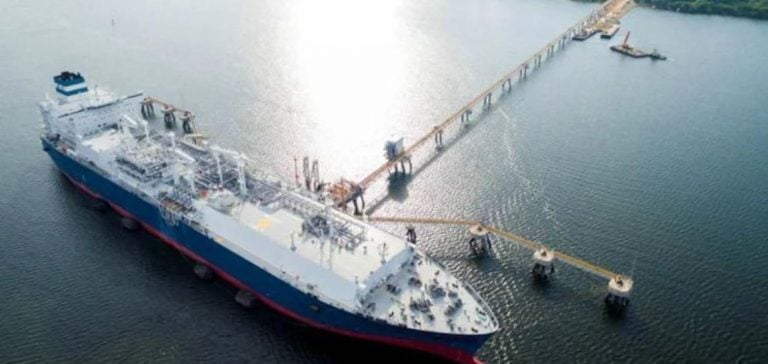Turkey strengthens its export capacity and diversifies its supplies thanks to a 10-year agreement with TotalEnergies for liquefied natural gas (LNG).
The agreement, signed between state-owned Botas and the French energy giant, marks a significant step in Turkey’s strategy to become a regional gas re-exporter.
Indeed, this contract is one of a series of long-term agreements that Turkey has concluded this year with non-state-owned companies, consolidating its position in the energy market.
The agreement provides for the delivery of 1.1 million tonnes of LNG per year from 2027.
Adding pipeline imports and previous LNG contracts with companies such as Oman, ExxonMobil and Shell, Turkey now has 25 billion cubic meters (bcm) of surplus gas, exceeding its annual consumption of 50 bcm.
Alparslan Bayraktar, Turkey’s Minister of Energy, points out that this surplus capacity enables Turkey to meet the needs of European markets, particularly those in southeastern Europe, which are looking for new sources of supply.
Flexibility and improved negotiation
This gives Turkey greater flexibility to negotiate better import conditions and reduce its dependence on Russia and Iran.
Contracts with Gazprom Export and the National Iranian Gas Company are due to expire in 2025 and 2026, prompting Turkey to diversify its sources of supply.
According to Brenda Shaffer, energy expert at the US Naval Postgraduate School, “Turkey has two objectives in its gas import strategy: on the one hand, to reduce import volumes from Russia and Iran, and on the other, to position itself as a gas supply hub, especially as European buyers have not signed enough long-term contracts.”
For TotalEnergies, this agreement reinforces a long-term relationship with Botas, following an initial LNG contract to supply 1.2 mtpa from 2020 to 2023.
Gregory Joffroy, Senior Vice President, LNG at TotalEnergies, says, “This agreement allows us to secure long-term sales and reduce our exposure to gas price fluctuations on the spot market.”
This is in line with Total’s strategy to develop integrated gas and power activities in growing markets.
Fast-growing energy demand
Turkey experienced the strongest growth in energy demand of all OECD countries between 2000 and 2020, with primary energy consumption almost doubling and electricity demand increasing by 165%, according to the International Energy Agency.
This dynamic energy growth underscores Turkey’s strategic importance in the global energy landscape.
Last year, TotalEnergies acquired a 50% stake in Ronesans Enerji, owned by Turkish tycoon Erman Ilicak, which has 166 MW of hydroelectric assets and a portfolio of future projects in wind, solar and batteries.
As the world’s third-largest LNG player, TotalEnergies has a market share of around 12% and a global portfolio of some 50 million tonnes a year.
This position enables the company to play a key role in the energy transition and decarbonization, while meeting the growing demand for natural gas on international markets.
Recent developments in the Turkish energy sector, notably the agreement with TotalEnergies, illustrate Turkey’s clear desire to strengthen its position in the gas market while diversifying its sources of supply.
This strategy could not only enhance the country’s energy security, but also enable it to play a central role in Europe’s energy supply, particularly in a context of transition to more sustainable energy sources.






















